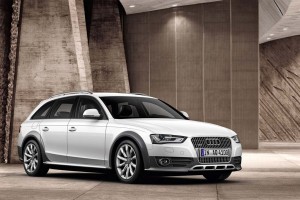Audi is the latest automaker to warn consumers about potentially defective airbags, though the maker says the defect it has discovered on some of its smaller A4 models is not linked to the problem that this week led to an unprecedented recall warning by the National Highway Traffic Safety Administration.
The German luxury brand is recalling a total of 850,000 vehicles worldwide, including 101,900 sold in the U.S. and another 15,100 purchased in Canada during the 2013 to 2015 model-years. The service action involves the A4, sportier S4 and wagon-based Allroad models.
The Audi airbags were not produced by Takata Corp., the Japanese mega-supplier now linked to the recall of 16 million vehicles worldwide – including 7.8 million covered by a NHTSA advisory sent out this week.
In the case of the Takata airbag problem the devices could inadvertently misfire or explode, especially on vehicles sold in areas with high humidity. In this instance, Audi says, its airbags might not deploy at all in a crash due to a software coding error within the airbag control module. That might put front occupants at risk.
(NHTSA chief apologies for snafu’s in handling this week’s recall alert. Click Here for the story.)
The maker says it has not received reports of crashes or injuries linked to the problem, however, the defect discovered during routine testing.
The maker will issue a recall alert to owners asking them to bring their vehicles into dealers for free repairs.
A review of federal records by the Center for Auto Safety this week indicated that over 16.5 million vehicles have been involved in airbag recalls since 2008 in the U.S. alone, about half of them due to the Takata problem. (The Takata issue itself has now caused 16 million vehicles to be recalled worldwide.)
(For the latest on the Takata recall, Click Here.)
That number could grow substantially. Several federal lawmakers, including Connecticut Sen. Richard Blumenthal, want to expand the scope of the Takata alert. In some cases, only vehicles sold in high-humidity areas, such as Southern Florida, are involved in that recall, but they want all models equipped with the supplier’s safety system included.
While the Takata issue illustrates what happens when a defective product is sold to a wide range of manufacturers, the Audi recall comes as a warning that even the most important safety innovations can experience a variety of different issues.
Within the last week, Ford and General Motors have announced new airbag recalls, the latter involving a factory production defect. Ford expanded upon a service action it first announced last month which involved a potential short-circuit in a control module provided by German supplier Robert Bosch LLC. The cost of that recall is expected to run upwards of $500 million, and was a factor in the recent plunge in Ford’s stock price.
(New Ford warning system could reduce pedestrian fatalities. Click Here to learn more.)
Industry observers suggest there should be no surprise that airbag recalls are on the rise. After all, there are more of the devices being used every year. There are frontal bags, side impact bags, rollover bags and knee bags. Several new GM SUVs even have airbags mounted between front seat occupants to keep them from banging heads in a collision.
“You knew airbags were here to stay when you had more airbags in a vehicle than cupholders,” joked Center for Auto Safety Director Clarence Ditlow.
But while he and other safety experts admit they’re worried about the current recall trend, they also want consumers to understand that airbags are still an essential safety feature that, despite recent problems, still save many, many lives.
“The bigger picture from the research we’ve done over the years is that airbags are performing very well,” stressed Russ Rader, a senior vice president with the Insurance Institute for Highway Safety.
Rader’s own BMW is on the NHTSA recall list. He said he will get it repaired as soon as possible, adding that he is confident the technology could provide a critical cushion of safety if he’s ever in a crash.

